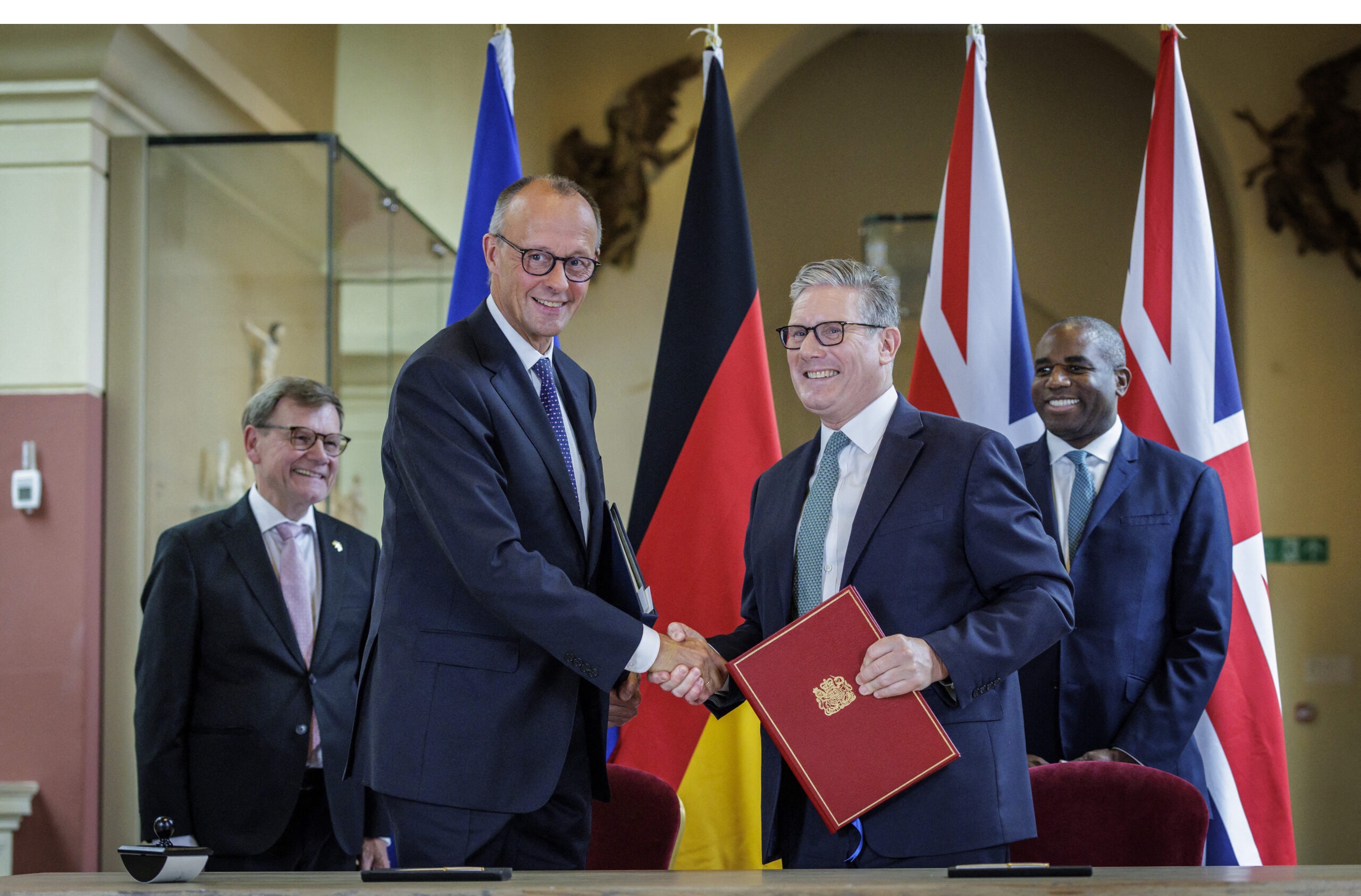The United Kingdom and Germany have signed their first bilateral treaty since World War II, marking a significant step in their evolving post-Brexit relationship and underlining the growing urgency for European nations to strengthen defense ties in an increasingly volatile global landscape.
Signed on Thursday at the Victoria and Albert Museum in London by UK Prime Minister Keir Starmer and German Chancellor Friedrich Merz, the Kensington Treaty outlines a sweeping framework for military and strategic cooperation between Europe’s two largest non-nuclear and nuclear powers.
The agreement includes commitments to mutual defense in the event of attack, joint weapons export initiatives, and a coordinated approach to regional and global security issues.
At a press conference following the ceremony, Chancellor Merz said the agreement signals a “new chapter” in UK-German relations, particularly after Britain’s departure from the European Union in 2020.
“Defence is the thread that runs through this treaty,” he said, emphasizing the shared challenges Europe now faces.
Prime Minister Starmer echoed the sentiment, stating, “We see the scale of the threats facing our continent today, and this treaty is our joint response.
“We intend to meet them head-on.”
The treaty includes a clause pledging mutual military support in case of an armed attack on either country.
On the other hand, the practical implications remain largely symbolic, given both nations are already bound by NATO’s Article 5 collective defense agreement.
Nonetheless, the formal bilateral commitment adds political weight and signals greater autonomy in regional security planning as uncertainty lingers over long-term U.S. involvement in European defence.
The treaty also builds on recent momentum for tighter cooperation among Europe’s leading powers.
Chancellor Merz’s visit follows French President Emmanuel Macron’s three-day state visit to London, during which the UK and France pledged to coordinate their nuclear deterrence strategies.
While Germany does not possess nuclear arms, the new treaty affirms that Berlin and London will maintain “a close dialogue on defence matters of mutual interest… including nuclear issues.”
The accord further addresses the ongoing war in Ukraine.
Starmer and Merz reaffirmed their commitment to supporting Kyiv, particularly as the U.S. under President Donald Trump adopts a more transactional stance.
They propose that NATO allies purchase American arms to send to Ukraine, rather than providing direct aid from Washington.
Starmer said a plan was being developed in the event of a ceasefire in Ukraine, emphasizing that the immediate priority is to bring Russian President Vladimir Putin “to the table for an unconditional ceasefire,” as reported by the BBC.
In tandem with military cooperation, the two leaders also discussed the growing debate around deploying European peacekeeping forces to Ukraine under a so-called “coalition of the willing.”
This coalition is an informal alliance of countries, led by the UK and France, and including Germany, that would oversee any potential post-war settlement with Russia.
The shift in tone across Western Europe comes amid concern that a second Trump presidency could weaken NATO’s traditional power dynamics.
According to analysts, this could push EU nations to take more responsibility for their own defense infrastructure.
With Russia’s invasion of Ukraine ongoing and Washington’s commitment in flux, Europe’s major powers are rethinking security strategy and pushing forward with regional initiatives.
Beyond defence, the treaty also expands UK-Germany cooperation on irregular migration, a key domestic political issue for Starmer.
As the Labour government seeks to neutralize the growing influence of the hard-right Reform UK party, the Prime Minister is prioritizing migration control as a top-tier issue.
The treaty includes provisions for joint operations against human smuggling networks and the sharing of intelligence.
Starmer praised Germany for enacting a new law that empowers law enforcement to investigate smuggling operations and storage sites used to hide small boats intended for English Channel crossings.
“This treaty shows we mean business,” Starmer said.
“We’re going after the criminals behind illegal migration—together.”
The migration measures build on a similar agreement reached between the UK and France last week.
That deal, dubbed the “one in, one out” pilot scheme, will see the UK deport some small-boat arrivals to France in exchange for asylum seekers with stronger claims and family connections in Britain.
Taken together, these back-to-back agreements mark a significant diplomatic pivot for Britain.
They are away from isolation and toward a more embedded role in shaping Europe’s future security and migration policy alongside its closest continental allies.







